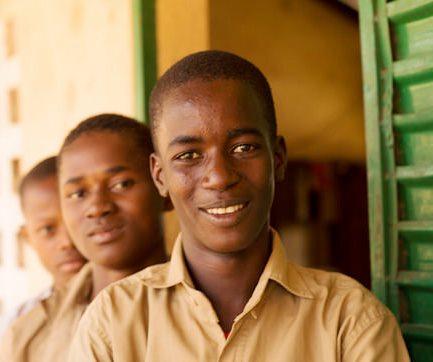Noting its lowest weekly total in more than a year, West Africa's Ebola-hit region reported only seven cases last week, a steep drop compared with a several-week plateau, the World Health Organization (WHO) reported today in its weekly update.
Four of the new lab-confirmed cases were in Guinea and three were in Sierra Leone. No new cases were reported in Liberia, which had recently experienced a cluster of cases in Monrovia.
Outbreak patterns
Geographically, the outbreak's footprint shrank last week, with five of the seven cases occurring in the capital cities of Conakry and Freetown.
The WHO said though the developments are encouraging, it's too soon to say if the progress will be sustained. Also, the agency warned that several high-risk events have occurred in Guinea and Sierra Leone over the past 2 weeks, and that a single high-risk case or missed contact can ignite a new cluster of infections.
Overall, the number of confirmed, probable, and suspected cases in the three most affected countries has reached 27,748, including 11,279 deaths, according to the WHO.
Transmission risks
The WHO said the situation seems to be improving due to tweaks in the response. For example, all of Guinea's cases last week were in known contacts—for the first time since the outbreak began early last year.
In Guinea, the three cases in Conakry are all from the same transmission chain that started in Dubreka district. The WHO noted, however, that one of the cases involves a healthcare worker and is associated with a high number of contacts
The country's only other case was from the adjacent Coyah district and was tied to an illness chain that began in Forecariah district.
For the first time since September, Guinea last week reported no Ebola deaths in community settings. And for the first time in 27 weeks, no cases were reported in Forecariah district, which for several months has been one of the outbreak hot spots.
Meanwhile, two of Sierra Leone's three cases were in Freetown, both of them in registered contacts who were in voluntary quarantine and were quickly isolated.
The WHO said the country's only case outside of the capital was in Tonkolili district. The patient had traveled from the Magazine Wharf area of Freetown on Jul 16 and died at a community hospital at his destination on Jul 23, where his illness was confirmed after his death.
His activities pose a substantial transmission risk, because he visited at least two health facilities from Jul 19 to Jul 21. The WHO added that more than 500 contacts—including several health workers— have been identified so far. Investigations are under way to identify the man's infection source and all contacts.
Emory shares lessons
In medical literature developments, clinicians at Emory University Hospital's special isolation unit yesterday reported on institutional lessons they learned in treating the first four patients who were airlifted out of Africa to the United States for treatment. The team published its findings in Public Library of Science (PLoS) Medicine.
The report described several challenges, including biosafety, waste management, communications, and preparing for a possible surge of Ebola cases. However, the authors noted that their experience provided opportunities to share what they learned and to better understand the clinical aspects of Ebola virus disease and its treatment.
Academic medical centers such as Emory can be expected to be at the frontlines to respond to future threats from Ebola and other infectious diseases, they said. They added that the situation yielded best practices, expanded research, and led to key partnerships with academic, government, and community groups.
See also:
Jul 29 WHO situation update
Jul 28 PLoS Med abstract



















